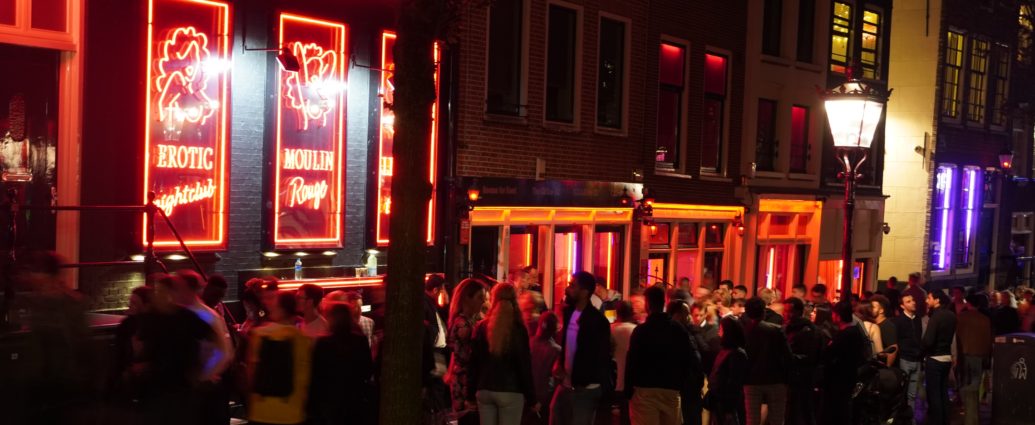A proposal for moving Amsterdam’s red light district and creating an “erotic centre” away from the capital city’s back alleys has been given the green light by Dutch councillors.
Known for its canals, beautiful homes, and coffee shops, Amsterdam is also known for its red light district – an area that contains a concentration of sex work and sex-orientated businesses such as sex shops, strip bars, adult theatres, and brothels.
The brothels in De Wallen, Amsterdam’s best-known red light district, are to be shut down and moved to a yet to be determined “erotic centre” after a push by the city’s mayor, Femke Halsema, who claims that the area has become a “tourist attraction, attracting gawping and abuse“.
Existing in Amsterdam since the 15th century, women have offered sexual services in De Wallen for hundreds of years. Legally allowed, although frowned upon prior to the Dutch Revolt in 1578, the war against Spain changed the policy on prostitution, making the practice illegal.
There were changes to the law in subsequent years, fluctuating between reluctant acceptance and rapid persecution of the trade. The 1960s saw soliciting of sex work in doorways as illegal, with a change of policy not coming until October 2000.
The turn of the century saw solicitation of sex work made legal. Today, sex workers are taxpayers and have access to medical care and better working conditions due to liberal regulation and monitoring of work practices.
Backed by the VVD (People’s Party for Freedom and Democracy), the Labour party, and the Green Party, the sex workers in the De Wallen red light district will be invited to move to a purpose-built centre elsewhere in Amsterdam.
The CDA (Christian Democrats Apeal) and ChristenUnie have lobbied for the closure of the brothel windows, with CDA MP Anne Kuik submitting a proposal to ban all paid sex in September 2020.
Speaking to AD newspaper last year, Ms Kuik said: “Most prostitutes would not actually want to have sex with the man in front of them. But it still happens, because it is paid. So consent is bought, the woman is a product. That is no longer possible in these modern times.”
With window prostitution being the most visible and typical kind of sex work in the district, De Wallen contains roughly three hundred one-room cabins rented by sex workers who offer their services from behind a window or glass door.
When the idea was first proposed, a newly formed lobby group named Red Light United claimed that 90% of 170 sex workers surveyed said that they wanted to work in De Wallen’s alleyways.
Speaking to Het Parool newspaper, a sex worker and member of the lobby group said: “Relocating those workplaces is not an option because then the customers will not know where to find the sex workers. Will Halsema also sometimes organise bus trips for them to the Westelijk Havengebied [a district north of the city centre]?”
Despite objections by the women of De Wallen, Amsterdam’s councillors agree that a relocation is necessary to change the type of tourists being attracted to the city. Another proposal to ban tourists from buying cannabis in Amsterdam’s cafes is struggling to garner support after fears it will drive trade to dealers on the street.
It is currently unknown when and where the sex workers will be relocated.
Shawna Healey
Featured image courtesy of Gio Mikava via Unsplash. This image has in no way been altered. Image license is available here.

